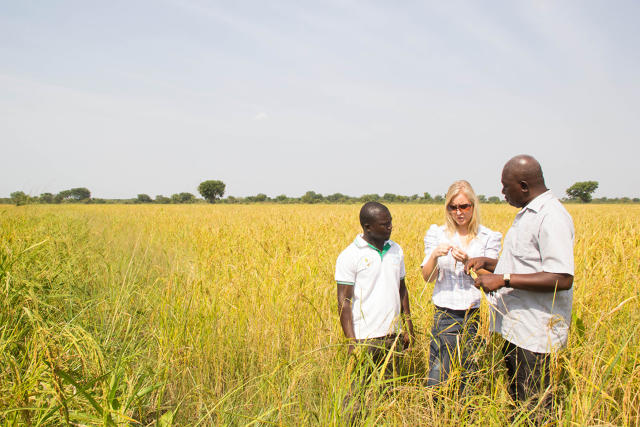Rain Forecasting via Text Helps Farmers
Published on by Investment Matchmaking Manager, Employee at water filtration company in Investor
Partnering with telecom providers, a weather forecasting startup is able to put better information in the hands of thousands of farmers.
 There are lots of types of data that Ignitia, a weather forecasting startup, could have focused on. But, after talking with farmers in West Africa, it realized only one question really matters to its customers: "Will it rain?"
There are lots of types of data that Ignitia, a weather forecasting startup, could have focused on. But, after talking with farmers in West Africa, it realized only one question really matters to its customers: "Will it rain?"
"They don't care about temperature or wind, or about daylight hours or soil moisture," says Lizzie Merrill, who works for Sweden-based Ignitia in the region. "We can produce those [data points] but they don't care. They want to know when it's going to rain and how heavy the rain is going to be."
Ignitia takes satellite data and, working with telecom providers, sends out localized forecasts via text message (say, "rain this morning, dry tomorrow"). The company claims a high accuracy rate of 84% and a forecast range of up to five miles.
 In its first of operation last year, Ignitia signed up 80,000 farmers in Ghana and sent out more than 10 million forecasts. It now wants to expand into West Africa using a $2.5 million grant from the "Securing Water for Food" challenge funded by the governments of the United States, Sweden, South Africa, and the Netherlands.
In its first of operation last year, Ignitia signed up 80,000 farmers in Ghana and sent out more than 10 million forecasts. It now wants to expand into West Africa using a $2.5 million grant from the "Securing Water for Food" challenge funded by the governments of the United States, Sweden, South Africa, and the Netherlands.
The company proved its model in Ghana, and it plans to expand in the region next. Eventually, its goal is to bring its system to other parts of Africa, India, and South America. This growth shouldn't be hard, Merrill says. It's just a question of localizing forecasts and partnering with telecom providers, which take a 50% cut. Ignitia currently works with MTN in Ghana and Orange in Mali.
"The challenge is to reach the famers in the middle of nowhere," Merrill says. "We have great forecasts for them but we have to work out how to let them know it's available."
Ku McMahan, who oversees the challenge for USAID, says it's time for the agency to try new new approaches to development that go beyond grant-making.
"We still have the same development focus but through a different model than your traditional 'I'm going to give you a grant for two years and see how things turn work out'," he says. "That's not to say traditional development doesn't work, only that it doesn't work in all cases."
Source: Fast Coexist
Media
Taxonomy
- Agriculture
- Rain Water Management
- Application Services